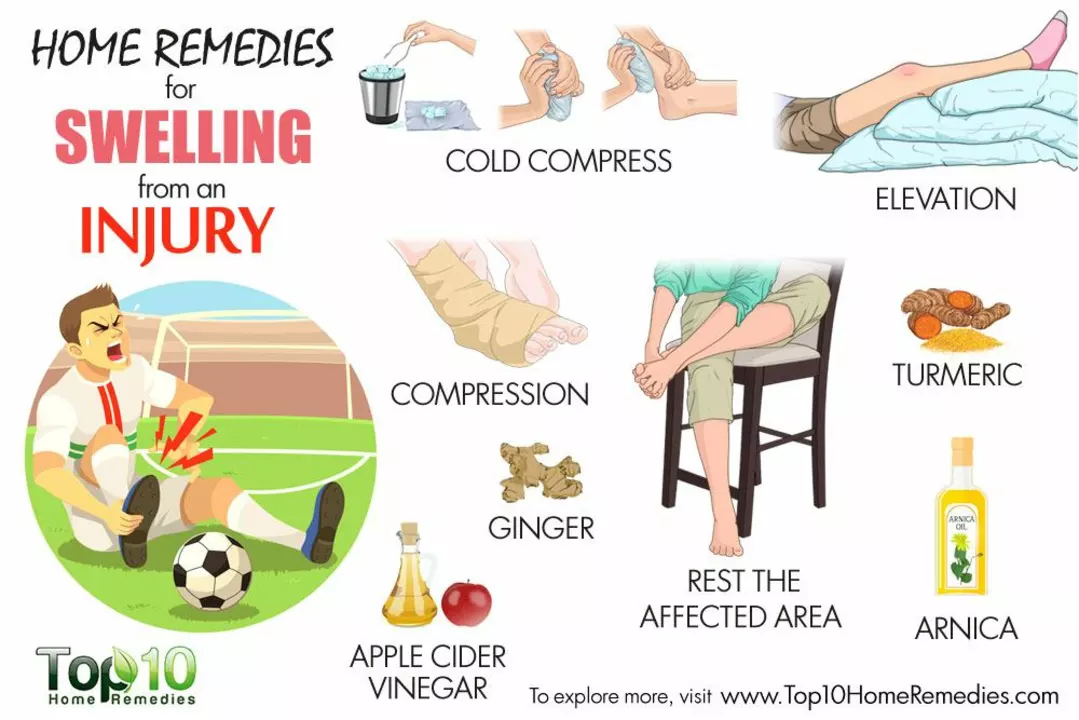How to Reduce Facial Swelling: Tips and Tricks
 May, 12 2023
May, 12 2023
Understanding the Causes of Facial Swelling
Before diving into the tips and tricks to reduce facial swelling, it's essential to understand its root causes. Facial swelling can be a result of various factors, including allergic reactions, sinus infections, fluid retention, or even certain medications. The key to addressing this issue effectively is to determine the underlying cause of the swelling. In some cases, addressing the root cause can significantly help in reducing the swelling.
Home Remedies to Combat Facial Swelling
There are several tried and tested home remedies that can help you effectively reduce facial swelling. These remedies are not only cost-effective but also safe and easy to implement. Some of these remedies include using cold or warm compresses, drinking plenty of water, and massaging the affected area with gentle pressure. You can also try using essential oils, such as lavender or eucalyptus oil, by adding a few drops to a carrier oil and gently massaging it into your skin. These oils have anti-inflammatory properties that can help alleviate swelling.
Over-the-Counter Medications and Treatments
If you're looking for a quicker solution, over-the-counter medications and treatments can be a great option. You can try anti-inflammatory drugs like ibuprofen or aspirin, which can help reduce swelling and alleviate pain. However, it's essential to consult your doctor before taking any medication, as it may interact with other medications you're already taking, or it may not be suitable for your specific situation. Additionally, over-the-counter creams or gels containing ingredients like hydrocortisone or arnica can also help reduce inflammation and swelling when applied topically to the affected area.
Preventive Measures to Avoid Facial Swelling
Prevention is always better than cure, so it's crucial to take steps to avoid facial swelling in the first place. Some preventive measures include maintaining a healthy diet by reducing your salt intake and increasing your consumption of fruits and vegetables. Staying hydrated is also essential, as it helps flush out toxins and excess fluids from your body. Furthermore, make sure to get enough sleep and avoid sleeping on your face, as this can contribute to fluid retention and swelling. Lastly, if you're prone to allergies, try to identify and avoid allergens that cause facial swelling, such as pollen or certain foods.
When to Seek Medical Help
While most cases of facial swelling can be managed at home or with over-the-counter medications, it's essential to know when to seek professional help. If your facial swelling is accompanied by difficulty breathing, severe pain, or fever, you should consult a healthcare professional immediately. Additionally, if your swelling doesn't improve or worsens after trying home remedies or over-the-counter treatments, it's essential to see a doctor to determine the underlying cause and receive appropriate treatment. Remember, it's always better to be safe than sorry, and seeking medical help when necessary can prevent complications and ensure a speedy recovery.

Alyson Knisel
May 12, 2023 AT 13:10also, sleep on your back. i used to crush my face into the pillow and woke up looking like a pufferfish.
Jelisa Cameron- Humphrey
May 12, 2023 AT 16:44That said, hydration status and sodium-potassium balance remain critical modulators of extracellular fluid dynamics. Consider electrolyte-rich hydration protocols alongside conventional modalities.
Lee Lach
May 14, 2023 AT 10:03Drink distilled water. Stop eating anything with a label. And stop trusting ‘doctors’ who get paid by drug companies. Your face isn’t broken - your system is poisoned.
Tracy McKee
May 15, 2023 AT 07:04if you have swelling its either allergy or infection and you need to see a doc not rub lavender on your jaw
Abigail M. Bautista
May 15, 2023 AT 22:36drink water dont sleep on your face
Rohan Puri
May 16, 2023 AT 12:40in india we just eat some ginger and salt and sleep upside down for 10 mins
Mandeep Singh
May 17, 2023 AT 14:28Chris Bellante
May 18, 2023 AT 22:15Nicole Manlapaz
May 19, 2023 AT 04:18Frederick Staal
May 19, 2023 AT 11:51Moreover, the normalization of over-the-counter NSAID use without medical supervision is a textbook example of pharmaceutical overreach disguised as wellness.
erin orina
May 21, 2023 AT 04:32